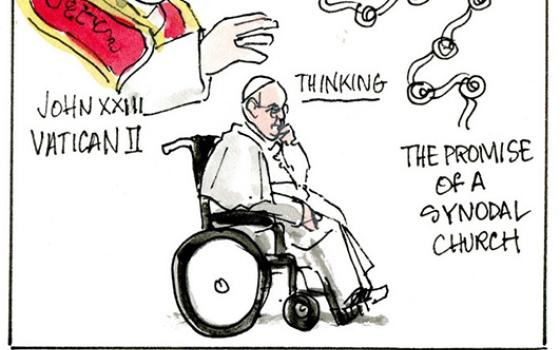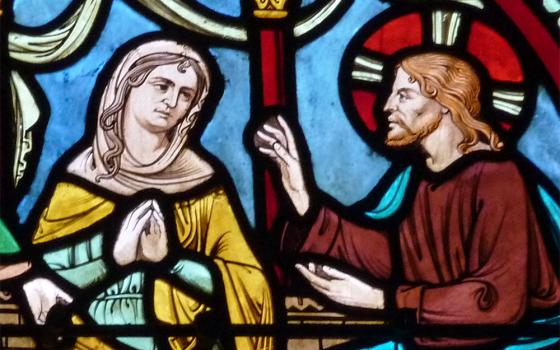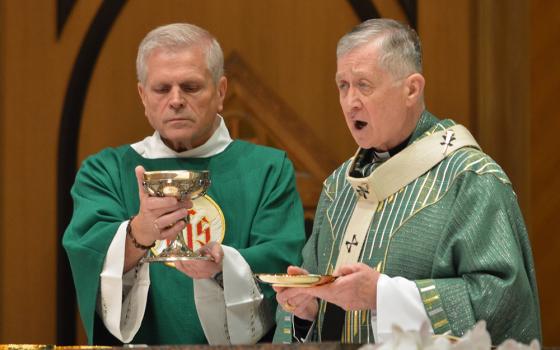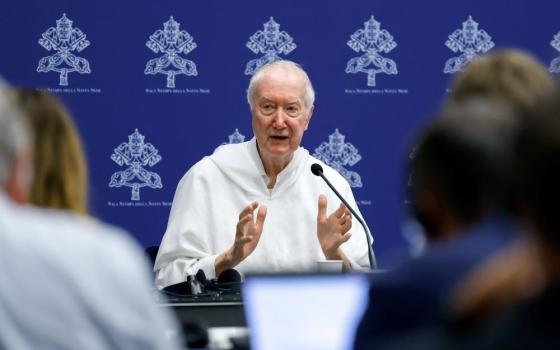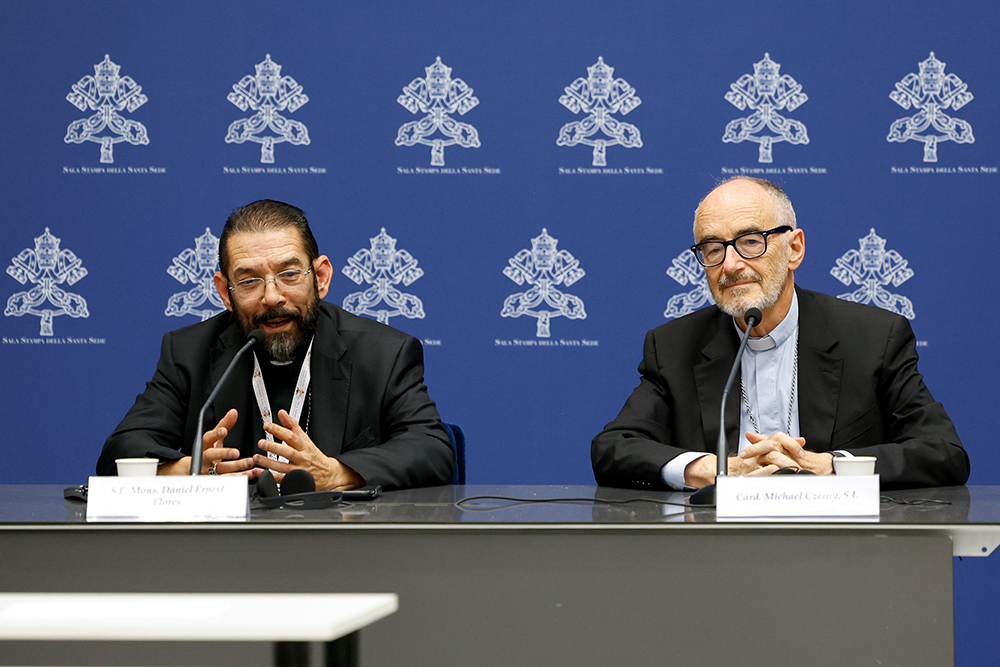
Bishop Daniel Flores of Brownsville, Texas, speaks during a briefing about the assembly of the Synod of Bishops as Cardinal Michael Czerny, prefect of the Dicastery for Promoting Integral Human Development, listens at the Vatican Oct. 19. (CNS/Lola Gomez)
The Catholic Church's synodal process, intended to actively solicit input from all its members, is not a threat to the hierarchy, a cardinal said.
"The hierarchical structures of the church have nothing to fear from a process that begins with listening," said Canadian Cardinal Michael Czerny, prefect of the Dicastery for Promoting Integral Human Development.
During a synod briefing at the Vatican Oct. 19, the cardinal said that "it's impossible that that should damage the hierarchical nature of the church," adding that it is an act of faith and hope to believe that "radical listening" will improve the functions of the church's structures.
Synod members spoke to reporters the day after they began discussions on participation in the church's life and mission, responding to the question, "What processes, structures and institutions in a missionary synodal Church?"
"The exercise of any structure or ministry or authority of the church must be based on a fundamental conversion of heart," Bishop Daniel Flores of Brownsville, Texas, said during the briefing. Rather than begin by reorganizing church structures, "I'm more worried about how it is that we will inaugurate a deep thirst to become a people, baptized and ordained, who are focused on serving one another in the heart of Christ."
Advertisement
Archbishop Dabula Anthony Mpako of Pretoria, South Africa, said that "synodality coexists with the hierarchical structure of the church."
"I think we have all accepted that in the Catholic Church, synodality has unique character. It is a synodality, at the center of which there is the chair of Peter, the pope," he said. "At the end of the day, hierarchy goes together with synodality."
Discussing the novelty that members of the synod who are not bishops or even priests have the right to vote at this assembly, Czerny noted that the "identification between orders and offices is something that is being overcome."
"We're understanding orders not to be necessary for every office which until now has been headed by a cleric" and in some cases only bishops, archbishops or cardinals, he said. "There's no danger to the nature of the church because there are responsibilities which are already being and which perhaps increasingly will be entrusted to non-cardinals, non-bishops, non-priests."
Asked about the belief held by some members of the church that the outcome of the Synod of Bishops is predetermined to advance progressive positions, Flores said, "I do not see a conspiracy."
"I have simply heard honest, sincere, faithful, charitable conversations 'sub tutela Petri' — under the care of Peter," he said, adding that such discussions are "not a threat to the faith."
Mpako said that viewing the synod as a threat to the church "doesn't connect with the reality as I know it."
"I think the desire for a more synodal church that encourages the participation by all is something that many of us have been calling for," he said.





